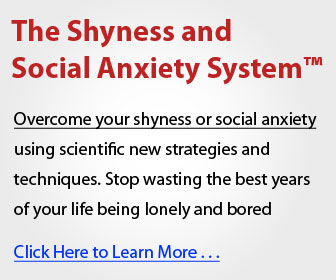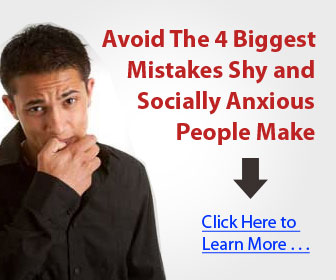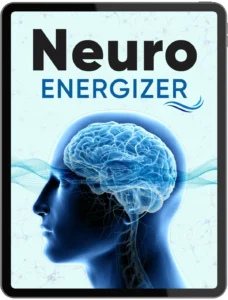In today’s fast-paced world, feelings of anxiety and stress have become an unavoidable part of daily life. Work deadlines, personal responsibilities, and constant digital distractions can overwhelm both the mind and body. While many coping strategies exist, one of the most effective and accessible techniques is breathing exercises for anxiety and stress. These exercises require no equipment, no special environment, and can be practiced anywhere—making them a powerful tool to restore balance and peace.
In this comprehensive guide, we’ll explore why breathing techniques are so effective, the science behind them, and step-by-step instructions for the best breathing exercises for anxiety and stress relief.
Why Breathing Matters for Mental Health
Our breathing is directly connected to the nervous system. When we feel stressed or anxious, the body activates the “fight or flight” response—causing shallow, rapid breathing, increased heart rate, and muscle tension. Over time, this stress response can leave you feeling drained, irritable, and even physically unwell.
Practicing breathing exercises for anxiety and stress reverses this process. Slow, deep, and mindful breathing activates the parasympathetic nervous system, often referred to as the “rest and digest” mode. This reduces cortisol (the stress hormone), lowers heart rate, and promotes a state of calm awareness.
The Benefits of Breathing Exercises for Anxiety and Stress
When practiced consistently, these techniques can lead to powerful long-term benefits:
- Instant relaxation: Helps reduce racing thoughts and overwhelming feelings.
- Better focus: Mindful breathing improves mental clarity and concentration.
- Emotional balance: Reduces mood swings and improves resilience to stress.
- Physical health: Lowers blood pressure, improves oxygen circulation, and supports heart health.
- Better sleep: Creates a calmer mind, making it easier to fall asleep and stay asleep.
The Best Breathing Exercises for Anxiety and Stress
Below are some of the most effective, science-backed breathing techniques you can try right away. Each exercise can be practiced for just 3–10 minutes daily, or whenever you feel overwhelmed.
1. Diaphragmatic Breathing (Belly Breathing)
This is one of the simplest yet most powerful breathing exercises for anxiety and stress.
How to do it:
- Sit or lie down in a comfortable position.
- Place one hand on your chest and the other on your belly.
- Inhale deeply through your nose, allowing your belly to rise while keeping your chest still.
- Exhale slowly through your mouth, letting your belly fall.
- Repeat for 5–10 minutes.
Why it works: This type of breathing slows down the heart rate and signals the body to relax.
2. Box Breathing (4-4-4-4 Technique)
Box breathing is popular among athletes, Navy SEALs, and professionals who need to stay calm under pressure.
How to do it:
- Inhale through your nose for 4 seconds.
- Hold your breath for 4 seconds.
- Exhale slowly through your mouth for 4 seconds.
- Hold again for 4 seconds.
- Repeat the cycle for 5–10 minutes.
Why it works: The structured rhythm provides mental focus and reduces chaotic thinking, making it one of the best breathing exercises for stress and anxiety relief.
3. 4-7-8 Breathing Technique
Developed by Dr. Andrew Weil, this method is highly effective for relaxation and sleep.
How to do it:
- Inhale quietly through your nose for 4 seconds.
- Hold your breath for 7 seconds.
- Exhale completely through your mouth for 8 seconds.
- Repeat for 4 cycles, and gradually increase with practice.
Why it works: This technique slows down the nervous system, reduces stress, and prepares the body for deep rest.
4. Alternate Nostril Breathing (Nadi Shodhana)
A traditional yoga technique that balances both hemispheres of the brain.
How to do it:
- Sit comfortably with your spine straight.
- Close your right nostril with your thumb. Inhale deeply through your left nostril.
- Close your left nostril with your finger, then exhale through your right nostril.
- Inhale through the right nostril, then switch and exhale through the left.
- Continue for 5 minutes.
Why it works: This technique calms the mind, reduces anxiety, and promotes mental clarity.
5. Resonance Breathing (Coherent Breathing)
This exercise creates a balanced rhythm that optimizes heart and lung function.
How to do it:
- Inhale gently for 5 seconds.
- Exhale gently for 5 seconds.
- Continue this pattern for 10–20 minutes.
Why it works: Studies show that coherent breathing improves mood and reduces anxiety by harmonizing the nervous system.
6. Lion’s Breath (Simhasana)
A yoga-inspired technique to release tension and suppressed emotions.
How to do it:
- Sit on your knees or cross-legged.
- Inhale deeply through your nose.
- Open your mouth wide, stick out your tongue, and exhale forcefully while making a “ha” sound.
- Repeat 3–5 times.
Why it works: This exercise relieves jaw tension, improves blood circulation, and provides a playful stress release.
Tips for Practicing Breathing Exercises Effectively
- Start small: Even 2–3 minutes daily can make a difference.
- Consistency matters: Practice at the same time each day (morning or bedtime).
- Use reminders: Set phone alarms or place sticky notes in your workspace.
- Combine with mindfulness: Pair breathing with meditation, affirmations, or journaling for deeper benefits.
- Be patient: Just like physical exercise, results come with practice.
When to Use Breathing Exercises for Anxiety and Stress
- Before an important meeting or exam
- During overwhelming thoughts or panic attacks
- To wind down before sleep
- After receiving stressful news
- As part of a daily morning or evening self-care ritual
Final Thoughts
In a world where stress and anxiety often feel unavoidable, simple techniques like breathing exercises for anxiety and stress can be life-changing. By practicing diaphragmatic breathing, box breathing, 4-7-8 breathing, or other methods regularly, you can take control of your emotional state, improve your health, and create inner calm.
Remember, your breath is always with you. Learning how to use it consciously gives you a powerful, natural tool to reduce stress, ease anxiety, and bring more balance into your daily life.



